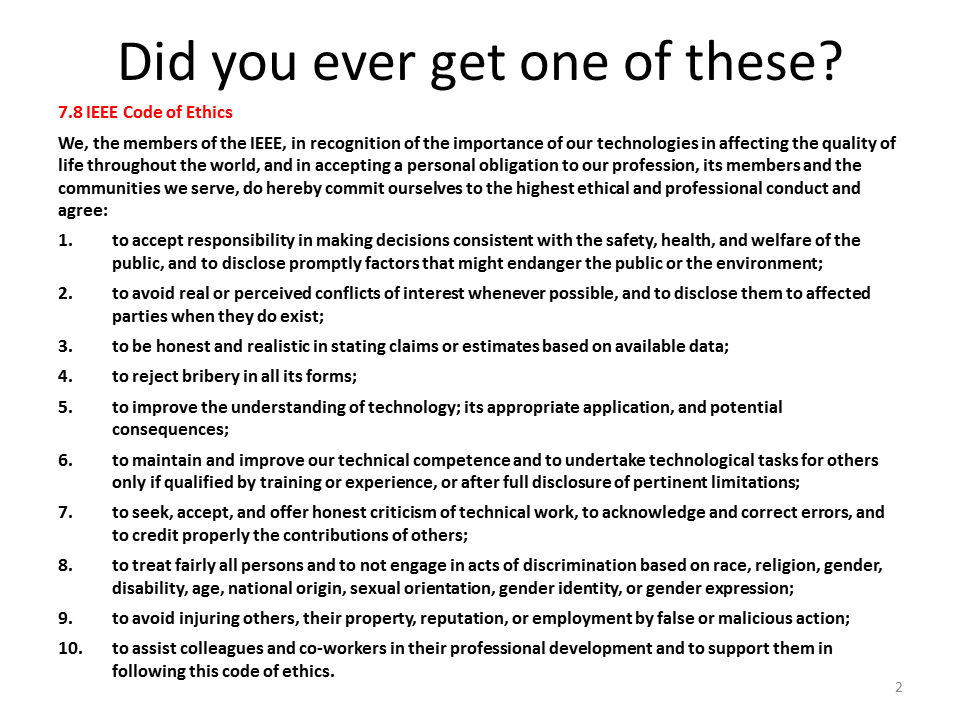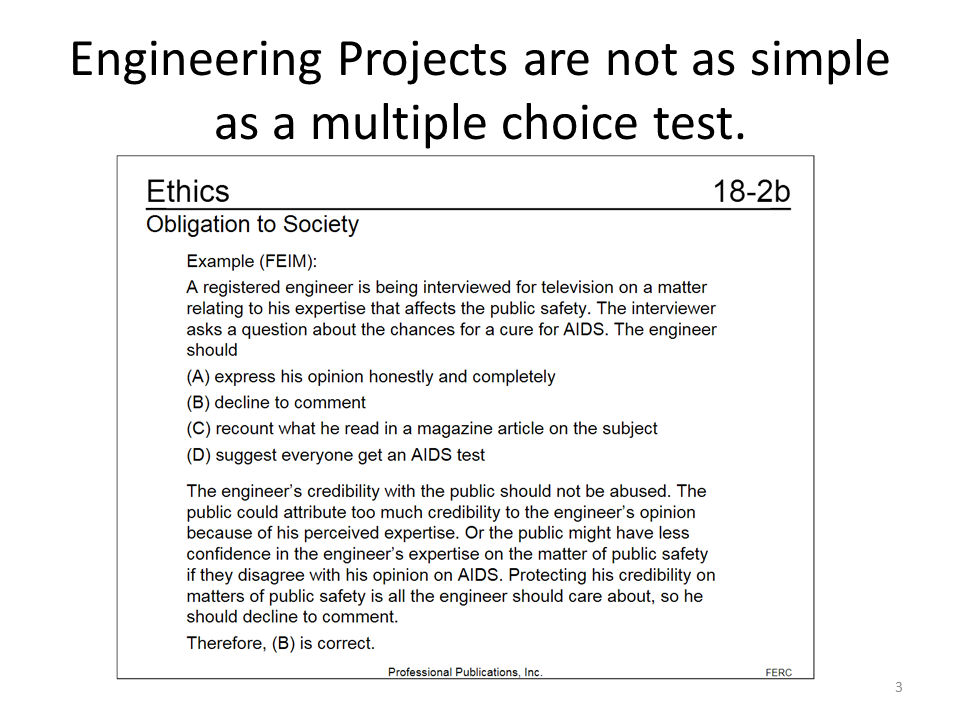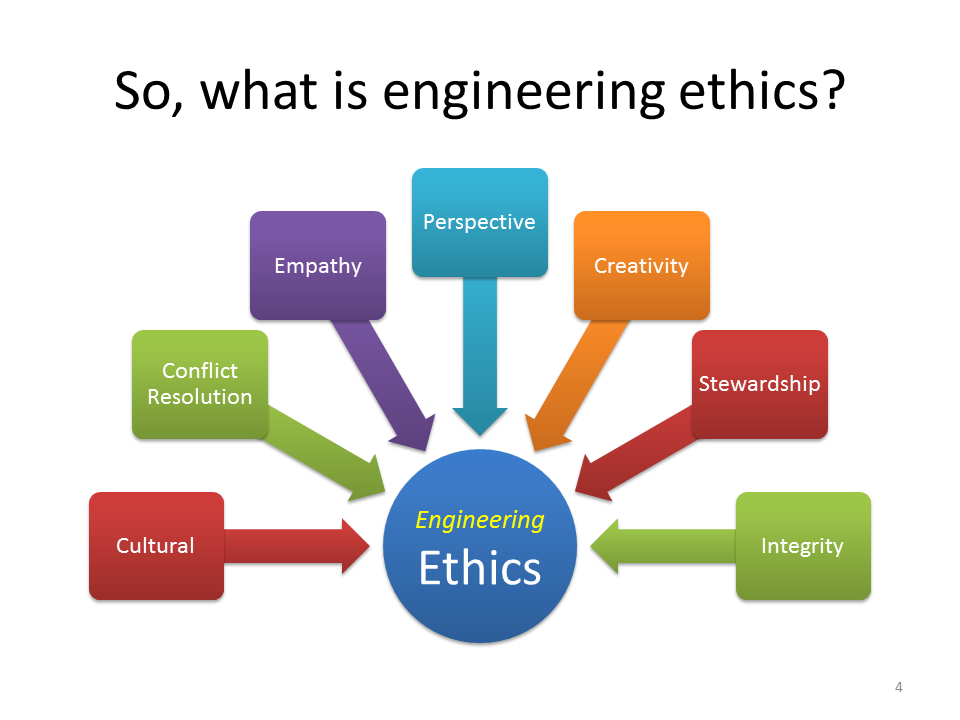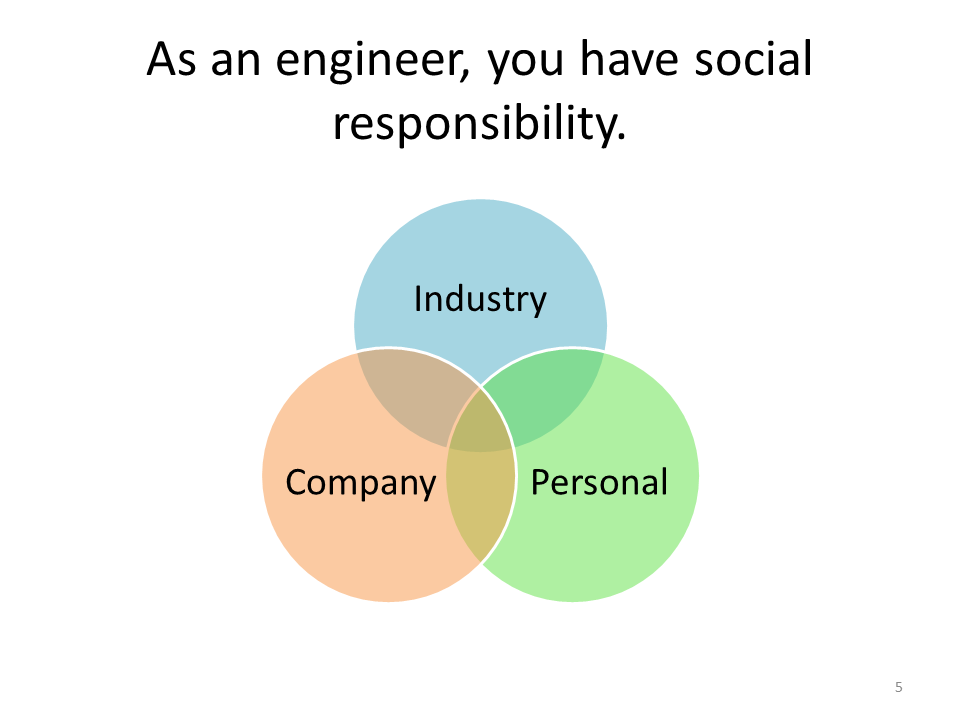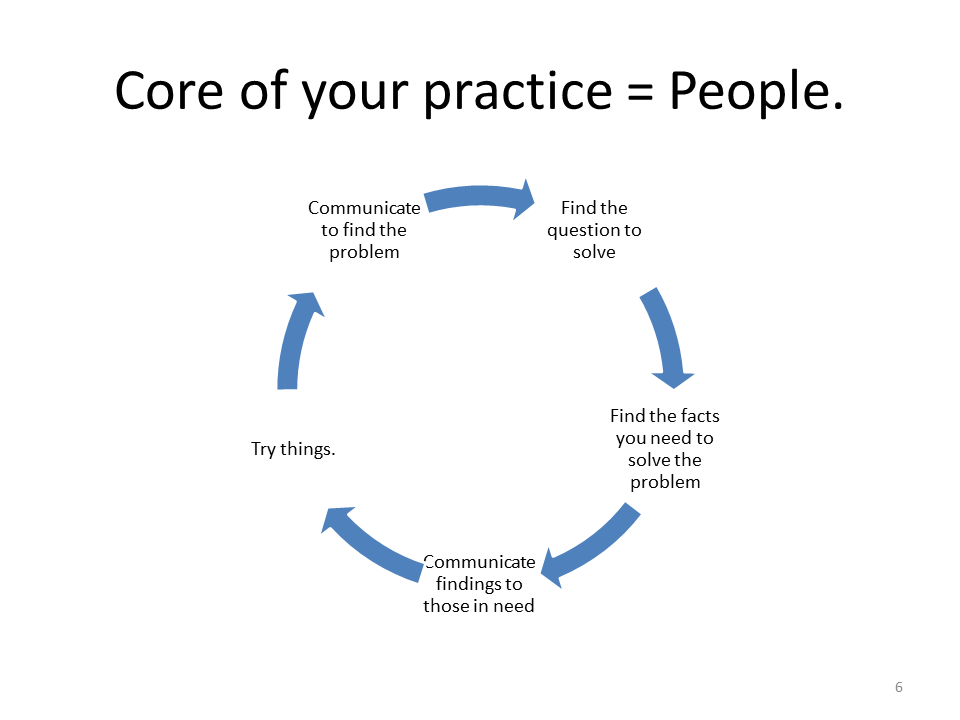Ethics in engineering
This was a 1-credit deep-dive into ethics and its role in engineering, with the outcome being to produce some examples of literature and teaching modules that could build ethical and social awareness in young engineers. Additionally, there were some useful sources found from business ethics that quite aligned with the approach WPI professor Fred Looft and I discussed and designed around.
The premiseThere is an implicit rule in engineering as to uphold and maintain the existing societal rules with the things we create. Engineering societies do have codes of ethics, however, it can be hard to determine what constitutes ethical behavior in the profession. Additionally, the cases presented are usually on the extreme consequence end-- which are mostly irrelevant to young engineers who will not face those dilemmas.
ABET intends to address this problem in their Fall 2016 meeting. |
The Existing solutionIt is standard practice to give engineering students a multiple choice test that has questions similar to this one.
(Generally speaking, there is no difference at the start and the end of the class that is measurable in how well students can answer these questions.) |
brief analysisA bit of background research and literature review was necessary in order to create what might be a plausible solution for instilling ethical values and principals in an undergraduate engineer or young professional.
Ethics are verbal guidelines used with the intention to influence human behavior to promote well-being or survival. -- Paraphrased from Raymond Spier |
core takeaways
|
Social responsibility involves not just your personal values, industry values, or company values, but also greater societal values. Engineers are expected to create that which makes life better for everyone else.
Communication is vital to the engineering profession as it is the only way to communicate values, thoughts, and concerns from one person to another. Additionally, being able to communicate concerns to non-technical teams is also important (and has significant impact on engineering project outcomes).
|
Teaching recommendations
Create exercises to build empathy, understand and prevent bias, and reinforce responsible engineering. Summary Engineers need to build a set of skills, introspective tools, and train themselves to deal with the various situations they come across. Applying ethics involves identifying ethical situations, observing your own approach to ethical dilemmas (though exercises such as those suggested by Mary Gentile), finding resources to help reinforce ethical judgement, and developing a mindset to help resolve issues in ethical ways. Engineers do not work alone, nor are they the sole decision makers, so negative case studies that highlight the ethical burden on the engineer should be evaluated more critically. Framing a problem is the key to naming and analyzing a situation Key References I Highly Recommend
- R. Spier, Ethics, tools, and the engineer. CRC Press, 2001. - M. C. Gentile, Giving Voice to Values: How to Speak Your Mind when You Know What's Right. Yale University Press, 2010. - M. S. Pritchard, "Responsible Engineering: The Importance of Character and Imagination," Sci. Eng. Ethics, vol. 7, no. 3, pp 391-402, 2001. - C. Whitbeck, "Ethics as Design: Doing Justice to Moral Problems," Hastings Cent. Rep., vol. 26, no. 3, pp.9-16, 1996. |
Final report
If you're curious about the report itself, you can view it here. (Excuse the citations as the work focused mostly on content and I was way over my credit-hour limit.)
